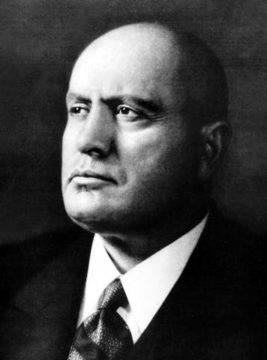 Alberto Toscano in Sidecar:
Alberto Toscano in Sidecar:
On 29 October 1922, Benito Mussolini was propelled to power by the March on Rome, inaugurating L’Era fascista. The date was subsequently declared the first day of Year One of the Fascist calendar. Like any founding event, the March was also the staging of a spectacle and the forging of a myth. An early and opportunistic reader of Georges Sorel’s Reflections on Violence (1908), Mussolini was persuaded that politics was inseparable from mythmaking, that it was a kind of mythopoiesis. In his Naples speech a few days before the March, he announced that
We have created our myth. Myth is a faith, a passion. It is not necessary that it be a reality. It is a reality to the extent that it is a goad, a hope, faith, courage. Our myth is the Nation, our myth is the greatness of the Nation. And to this myth, to this greatness – which we want to translate into a fulfilled reality – we subordinate everything else. For the Nation is above all Spirit and not just territory.
The myth of the Nation, of its lost and future greatness, continues to animate the resurgent far right across the globe. As in the speech delivered this week by the new Italian Prime Minister Giorgia Meloni, this myth is now often accompanied by paeans to ‘freedom’ which are meant to serve as antidotes to lingering suspicions of authoritarianism. This is not freedom as emancipation or liberation, but market freedom – yoked to what Meloni, quoting Pope John Paul II, described as ‘the right to do what one must’. Without rushing to shaky historical analogies, it may help to revisit fascism’s origins, one hundred years since its emergence, in order to understand its particular relationship with the market, and complicate the widespread perception of it as liberalism’s antithesis.
More here.
